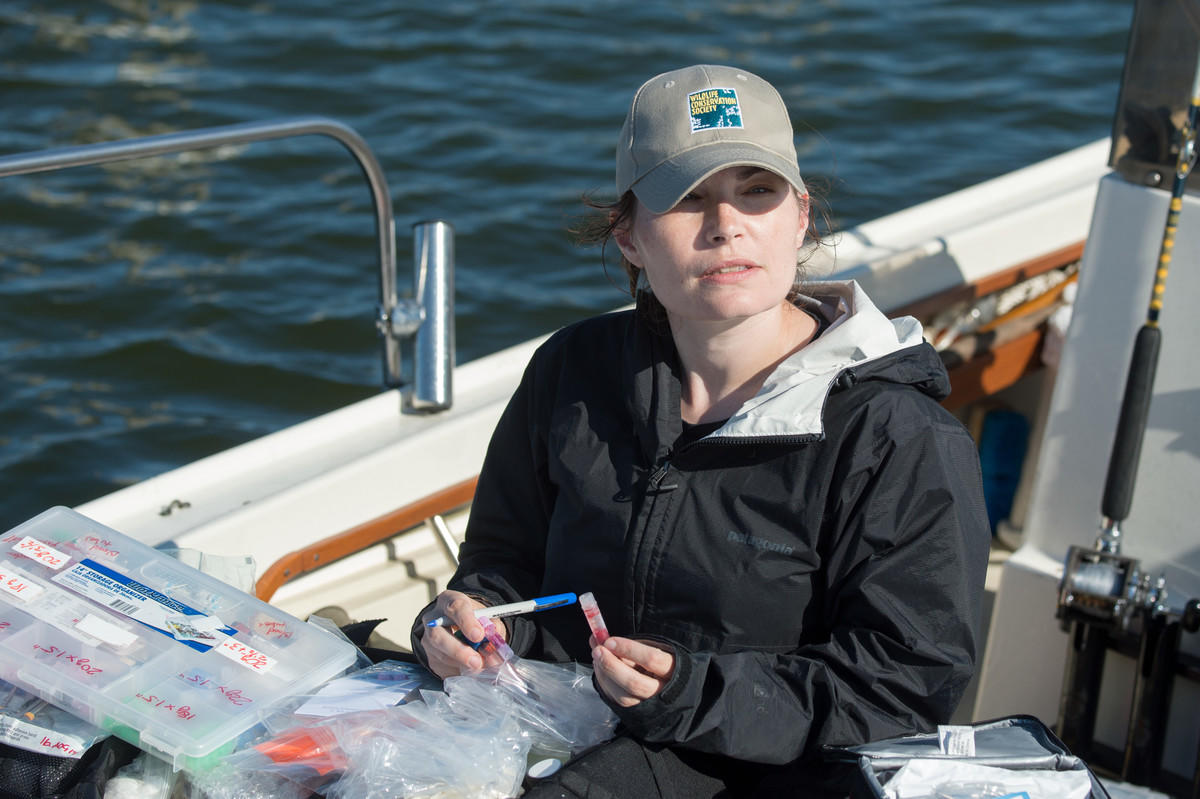Great white sharks are apex predators at the top of the ocean’s food chain, with no natural predators. They are central to the functioning of ecosystems and the maintenance of biodiversity. For several years, WCS Health Programs’ lead aquatic veterinarian, Dr. Alisa (Harley) Newton has collaborated as a Chief Scientist with OCEARCH, an innovative organization studying Great whites and other sharks for the benefit of global conservation and public safety. In recent years, a number of tagged sharks have made their way far north to Canadian waters and the team is collecting data to determine what factors are at play in drawing Great Whites further north through OCEARCH expeditions around Nova Scotia:
Great Whites in Great White North: Scientists Study Why
Sharks are caught using hand-lines, guided by hand in the water on and off a lift, and brought to a submerged platform on the OCEARCH vessel which can be raised. Hoses of water are set to enable a continuous flow of fresh seawater over the gills of the shark, and the science team, including Dr. Newton, begins its work. Tags are attached, morphometrics recorded, and samples, such as blood and tissue, are collected. Many studies are run using the samples collected, including the assessment of the reproductive condition, reproductive cycle, genetic analysis, diet using stable isotopes and fatty acids, gestation period, inorganic and organic contaminant loads, the fecundity of white sharks in the Atlantic Ocean, studying parasite species presence, abundance, and infection sites in white sharks. Scientific data from blood obtained by Dr. Newton from sharks on the lift show that they are minimally stressed compared to sharks caught using other methods. Data from the OCEARCH Tracker provides strong evidence that the animals tagged using this method show long-term survival and long-distance migrations indicative of normal function and reproductive cycles.
You can follow tagged sharks here

Harley Newton (Photo: WCS/ Julie Larsen Maher)